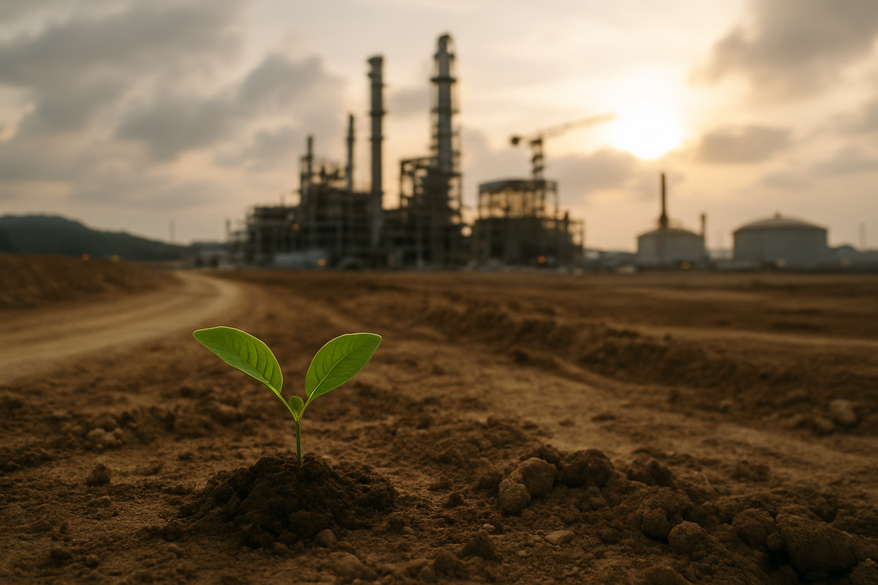Teknologam perspective on the Pengerang biorefinery groundbreaking
Teknologam Sdn Bhd welcomes the recent milestones in sustainable fuel production as industry leaders mobilize new capacity. We recognise the strategic implications for Malaysia’s downstream sector and our role as a specialist equipment supplier. This development aligns with our ongoing focus on advanced fabrication, modular delivery and compliance with stringent process-safety standards. We expect collaboration opportunities as the project moves from ceremony to construction and commissioning.
Key takeaways:
- The groundbreaking ceremony of the new biorefinery signals a notable shift toward industrial-scale biofuel integration.
- Technical focus will centre on feedstock flexibility, hydrogen utilities, and advanced separation technologies.
- Teknologam anticipates supply, fabrication, and maintenance roles that support modular construction and accelerated timelines.
Project overview and context
Petronas led the public event, reinforcing national energy-transition commitments. The groundbreaking ceremony for the new biorefinery — a collaboration between Petronas, Enilive and Euglena — emphasises private–public partnership. The plant is sited within the Pengerang integrated complex, leveraging existing refinery infrastructure and logistics connectivity. Project partners plan to integrate biochemical and thermochemical conversion routes to produce renewable fuels and biochemicals.
Quick facts:
- Location: Pengerang integrated complex
- Partners: Petronas, Enilive, Euglena
- Focus: Renewable fuels, chemicals, feedstock R&D
Strategic and technical implications
The partners are developing facilities that combine algae-derived feedstocks with advanced catalytic processing. Engineering priorities will include hydrogen management systems, high-efficiency distillation trains and robust process-control architectures. Tight integration of control systems with continuous monitoring will be required to meet product specifications and maintain safety. The project will create demand for custom pressure vessels, heat exchangers, and corrosion-resistant piping.
“We view this as a practical step toward decarbonising transport fuels, requiring robust fabrication and adherence to hydrogen-ready standards.”
Opportunities for Teknologam and suppliers
As Petronas, Enilive and Euglena move into construction, procurement windows will open for specialised manufacturers. Teknologam can offer modular skids, ASME-code pressure equipment, and bespoke piping systems, plus pre-commissioning services and factory acceptance testing (FAT) to accelerate turnover. Local-content requirements and compressed schedules make reliable domestic suppliers strategically important.
- Early engagement in EPC supply chains increases the chance to qualify for long-lead items and prefabricated modules.
- Supplying ASME-compliant pressure equipment will be a key qualification for major package bids: see the ASME Boiler and Pressure Vessel Code (BPVC) for relevant requirements and best practice.
Environmental and market outcomes
The Pengerang biorefinery project aims to deliver lower lifecycle emissions for selected fuel blends and should stimulate feedstock cultivation and waste-valorisation programmes in regional agribusiness. Market reception will depend on oil-price dynamics, regulatory incentives, and scalable feedstock costs. A successful ramp-up could create export opportunities for renewable diesel and sustainable aviation fuel (SAF).
- Reduced lifecycle carbon intensity for targeted products
- Increased demand for agricultural and algal feedstocks
- New long-term service contracts for equipment integrity
For context on lifecycle impacts and the role of SAF in decarbonising transport, refer to the IEA report on sustainable aviation fuels.
Risk, compliance and schedule considerations
Construction of sophisticated conversion units brings schedule and technical risk. Integration with existing utilities at Pengerang requires careful civil and mechanical interfacing. Corrosion management, hydrogen-embrittlement mitigation and rigorous QA/QC will be important throughout procurement and commissioning. Teknologam’s experience in petrochemical-grade fabrication positions us to support these requirements effectively.
What to watch next
Watch for tender releases for long-lead items, EPC scopes and modular delivery windows. Updates on feedstock sourcing and off-take agreements will indicate commercial viability. As Enilive, Petronas and Euglena progress into detailed engineering, suppliers should finalise qualification dossiers and capacity plans. Teknologam will monitor developments and prepare targeted proposals for pressure equipment, piping systems and on-site maintenance services.
We congratulate the project partners on reaching this milestone and stand ready to support Malaysia’s transition through engineered solutions that meet performance, safety and sustainability goals.
External references:
